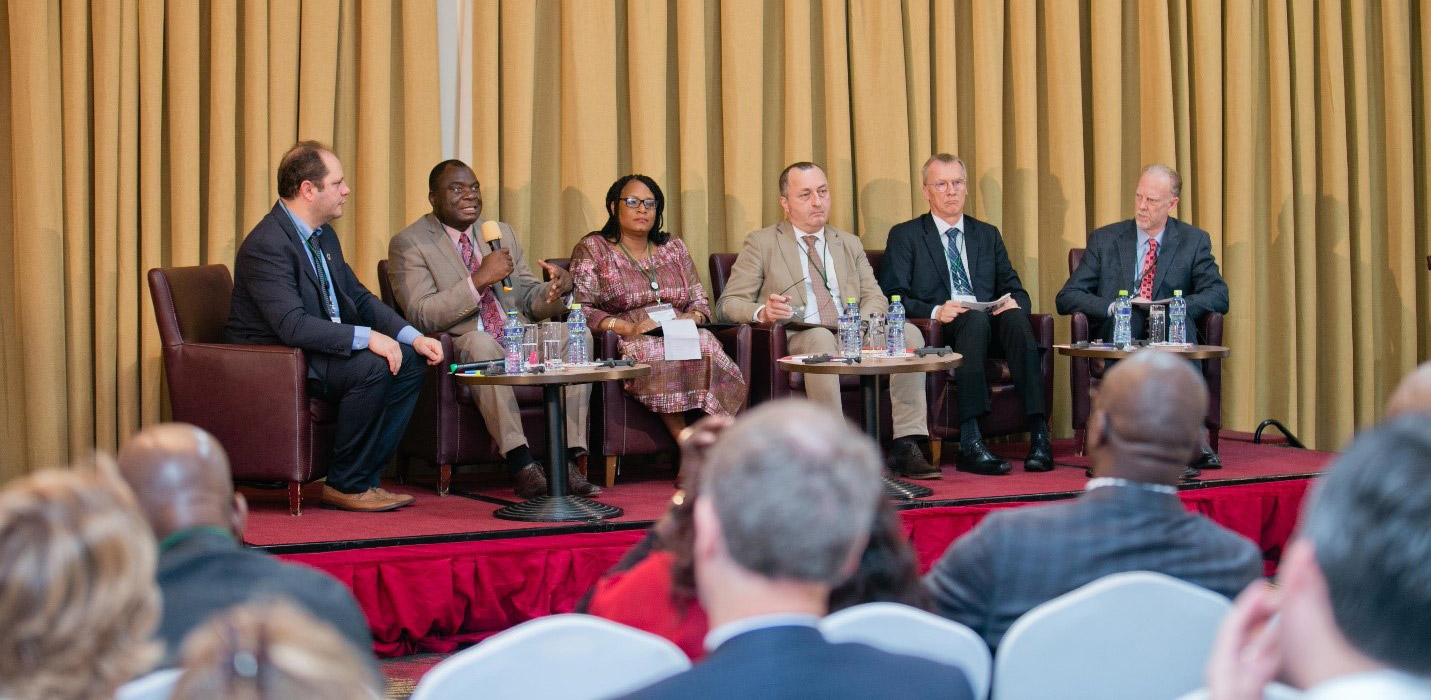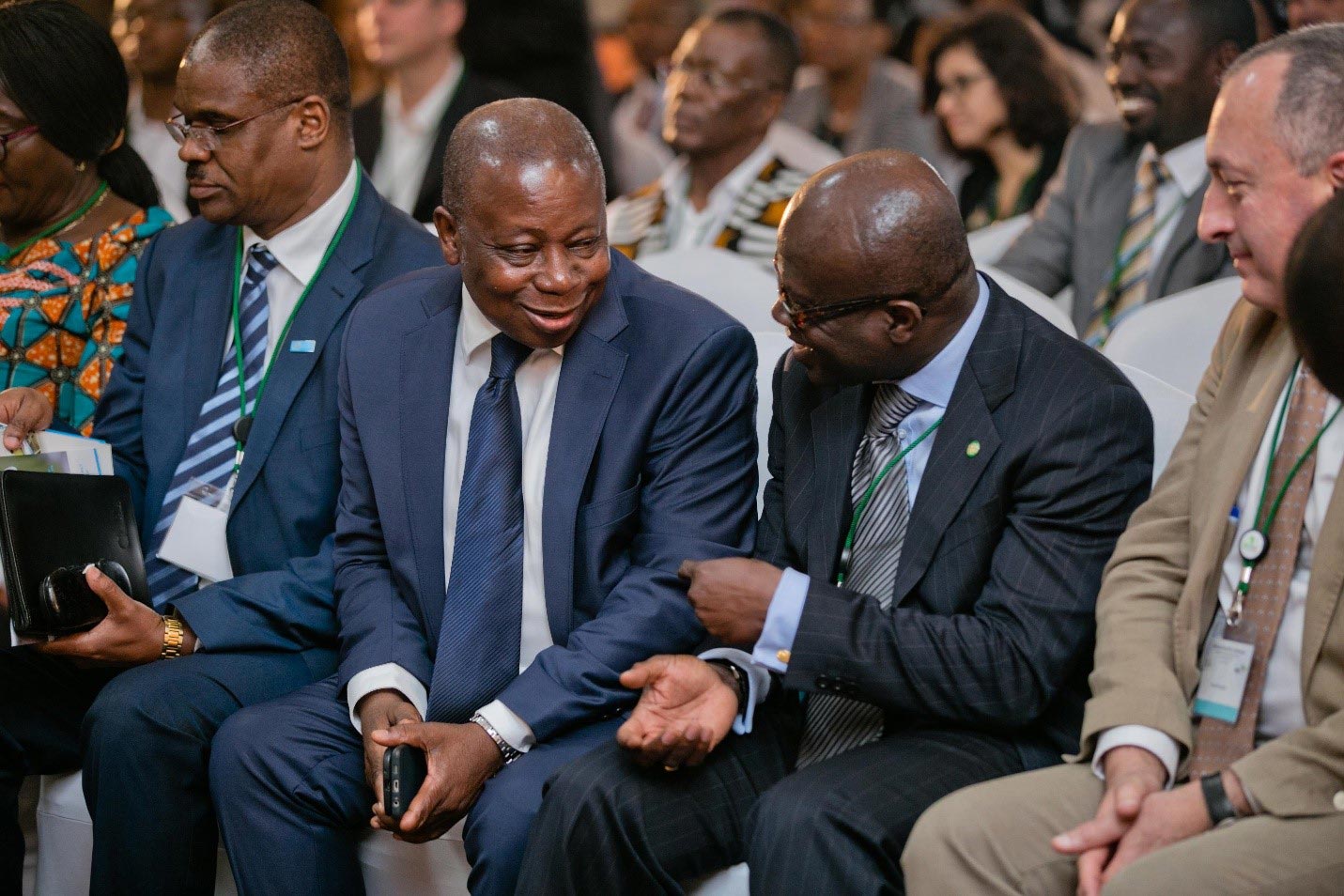Regional Reports
West Africa Medicines Regulatory Harmonization (MRH) Program Launched
David Mukanga
Global Forum Africa Regional Editor

Left to right: Moderator from Devex and representatives of NEPAD, AUC, WHO, WB, and BMGF
very two years, the International Federation of Pharmaceutical Manufacturers & Associations (IFPMA) and the New Partnership for Africa’s Development (NEPAD) host the Africa Regulators’ Biennial Scientific Conference on Medical Products Regulation.
In November 2017, all conference roads led to Accra Ghana for a conference co-organized with the Ghana FDA, the Economic Community of West African States (ECOWAS), the World Health Organization (WHO), the African Union (AU), and the Federation of African Pharmaceutical Manufacturers Associations (FAPMA) under the theme Sustaining the Momentum for Regulatory Harmonization in Africa.
The conference was attended by government representatives, regulators, and regional economic community secretariats; ECOWAS, WHO, AU, NEPAD, IFPMA and FAPMA secretariats; donors, and representatives of industry, development agencies, and civil society. It offered an opportunity for participants to take stock of progress made, and to share lessons and experiences, on regulatory harmonization in Africa.
The conference opened with a panel discussion with representatives from NEPAD, AU, WHO, the World Bank (WB), and the Bill and Melinda Gates Foundation (BMGF).
At the opening panel discussion, Dr. Dan Hartman (Director for Integrated Development at BMGF) segmented the barriers facing patients while they try to access medicines and health commodities into two categories: socio-economic, and health systems (including registration/regulatory processes). Key drivers currently impeding registration of quality medicines in West Africa include failure to access regulatory work products, such as inspection reports and scientific assessment reports, already performed by better-resourced regulatory authorities and the WHO, and leveraging these to inform appropriate local regulatory decision-making.

Left to right: Ghana Country Representative to WHO, Minister of Health of Ghana, and the PHC Director at WAHO/ECOWAS.
The African Medicines Regulatory Harmonization strategy is patient-focused, and aims to increase access to quality health products, by supporting efforts that optimize regulatory systems. The result is that a quality dossier can now get through the process in half the time it took in 2012 without sacrificing product safety, efficacy, or manufacturing quality. Results from a recent study by Janssen Pharmaceutica Inc. reveal that implementing the AMRH Initiative has reduced drug approval times by 40 – 60% for a number of branded medicines through joint dossier assessments in the East African Community (EAC). A BCG-led evaluation of the EAC MRH program shows that the first four products were registered under 90 days, with an average of 227 days for the initial eight products registered.
During the conference, ECOWAS launched its Medicines Regulatory Harmonization (MRH) program, endorsed by all 15 countries of the block (Burkina Faso, Mali, Niger, Nigeria, Ghana, Cote d’Ivoire, Senegal, Togo, Benin, Cape Verde, Guinea, Guinea Bissau, Sierra Leone, Liberia, and Gambia) and drawing lessons and experiences from the East Africa Community MRH program. While the program will eventually address all regulatory functions, its early focus will be on developing and implementing harmonized product registration requirements, guidelines, and standards. ECOWAS MRH program leadership has established seven expert working groups including one on Medicines Evaluation and Registration (MER), which will put out an expression of interest for submission of applications to the joint assessment process. Two joint review sessions are planned during the months of June and October 2018.
References available upon request.

